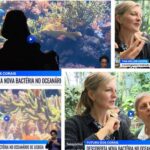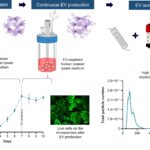Rare microorganisms – often overlooked due to their low abundance – hold immense genetic diversity and are key to ecosystem resilience, especially under environmental stress like climate change. Now, a new open-source tool called ulrb uses unsupervised machine learning to detect rare microorganisms in microbiome datasets. This innovation addresses a long-standing challenge in microbial ecology by distinguishing rare taxa from abundant ones, using an algorithm that learns patterns directly from the data.
The ulrb package is available on CRAN and GitHub, along with a dedicated website offering tutorials and resources for new users.
The study, led by PhD student Francisco Pascoal (CIIMAR), was published last week in Communications Biology. It results from an international collaboration involving researchers from CIIMAR and Universidade do Porto (Catarina Magalhães), the iBB-Institute for Bioengineering and Biosciences at Instituto Superior Técnico (Rodrigo Costa), the University of Ottawa (Paula Branco), and Dalhousie University.
The study was published in Nature – Communications Biology and highlighted is social media!
Link to the study: https://doi.org/10.1038/s42003-025-07912-4
Link to Social Media:



